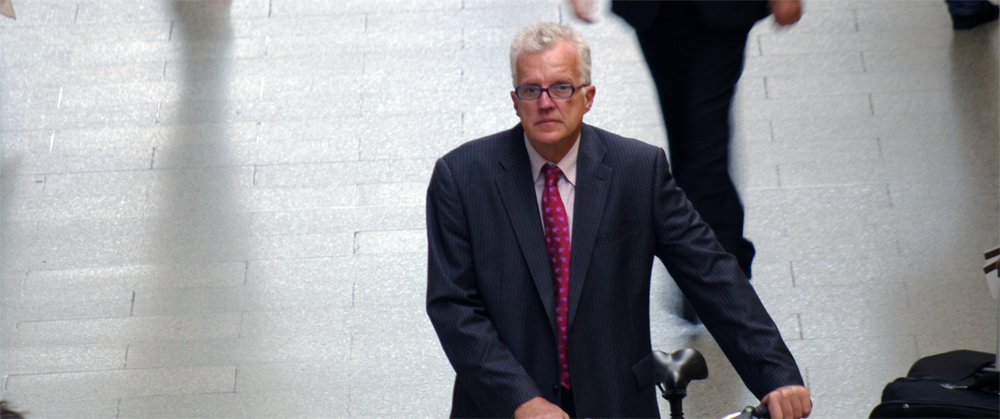Road safety is one of the issues where one feels that the government is going through the motions. Yes, you can hear ministers and senior officials think, road accidents are bad and we ought to do something about it, but at the end of the day there will always be deaths on the road because there are daft drivers about and there is not much we can do about it. So some reasonably easy targets were set and duly reached, but there remains nearly 3,000 deaths per year, a huge number especially in the context that deaths in other forms of transport such as rail and air have fallen dramatically in recent years.
It is time to get serious on this issue. The emphasis until recently has been on targeting particularly risks such as accident black spots and drunken drivers, but this strategy is beginning to show a reduced rate of return. To be fair, the government is taking a more holistic view of the issue – producing targets related to mileage rather than simple numbers, which is relevant to say encouraging cycling and walking. Its consultation document setting out its road safety strategy, published in April, floated the notion of universal 20 mph limits in towns and perhaps slowing down traffic on other roads with high accident rates.
Slightly more onerous targets are likely to be set with particular emphasis on injuries and deaths but, despite protestations to the opposite effect, there is still a feeling that the Department and ministers are complacent about the issue. Britain, after all, has always had the reputation of having a good safety record but actually in international league tables it does not fare that well. In terms of deaths per 100,000 population, for example it ranked 5th out of the 24 OECD countries in 2006 for overall road deaths and 11th, right in mid table, for pedestrian fatalities.
Importantly, the rate at which casualties has fallen has reduced. And you can see why. The emphasis has been on targeting the easy gains but now it will become more difficult as it becomes more difficult to discern clear patterns that can be addressed.
Speed, though, remains a key factor in deaths, irrespective of what the anti-camera campaigners claim and therefore an immediate move towards a 20 mph limit in all built up areas would have an enormous impact. However, the government has ducked out of this by saying it is up to local authorities to impose such measures. Until now councils have been reluctant to impose these 20 mph limits unless they are backed up by road humps and other paraphernalia, but this is based on an arbitrary view that motorists will obey a 30 mph limit, but not a 20 mph one, without such physical restrictions.
Politicians have tiptoed around this issue for too long and it is, presumably, the same fear of arising antagonism which prevents the government addressing another obvious road safety issue, the introduction of double single summer time (i.e. moving the clocks forward permanently by an hour). A report published in May by the National Audit Office, Improving road safety for pedestrians and cyclists points out that the worst time for child pedestrian deaths is ‘between 3pm and 7pm especially during the weeks after the end of British Summer time’.
The Transport Research Laboratory has calculated that there would be 82 fewer deaths with its introduction – in other words a 2.5 per cent cut. It is difficult to think of any other easily introduced measure that would have such a powerful immediate impact. Of course there are other factors implications. The measure has always been opposed by northern farmers and other early workers who might not see the sun till 10am in midwinter but most are positive, such as a considerable saving in energy. In the last Parliamentary debate on the issue, on 17 December last year, the Labour MP for Stafford, David Kidney, outlined them only to be pooh-poohed by the relevant minister who barely addressed the road safety issue. The Tory, Tim Yeo, was the last MP to put forward a bill on the issue which suggests there is cross party support.
There are countless other measures that would save lives, but they are not necessarily popular or cheap. For example, three lane roads are well known to be deadly and by fitting a relatively light barrier down the middle, with alternative directions being given the extra lane, accident rates plummet. Indeed, at a recent conference on road safety which I chaired the day after the road strategy paper was released, John Dawson of the European Road Assessment Programme, pointed out that the most important measure to improve safety would be to assess every mile of road infrastructure in terms of its risk and danger, and tackle the most dangerous stretches.
The imposition these measures would not only save lives immediately but it would show that the government means business in what, politically, is a tricky area given the crazed Clarkson-led petrolheads with their easy access to an unquestioning media. In Sweden and the Netherlands, both above us in the league tables, there is a stated determination to drive down road deaths to zero. British ministers should follow suit even if it means attracting the wrath of the Daily Mail.
